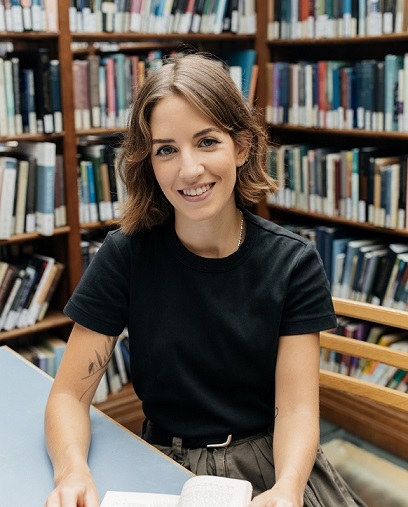Dr Hannah Lucas, Newnham
hal32@cam.ac.uk

Biographical Information
I am the Newby Trust Research Fellow at Newnham College, where I also act as a supervisor and postgraduate mentor.
I read English at Oxford for my BA, before migrating to Emmanuel College in Cambridge for my MPhil in Medieval and Renaissance Literature. My DPhil was also based at the University of Oxford, where my dissertation won the Swapna Dev Memorial Book Prize.
From October 2025, I will be a Research Fellow at the Max Planck Institute for the History of Science and the Technical University Berlin, funded by the Alexander von Humboldt Foundation.
Research Interests
My research lies the intersection of literary history, theology, philosophy, and the medical humanities—focused on contemplative texts and practices, and the relationship between the medieval and the modern. I am currently investigating attention in Middle English devotional texts, especially contemplative ways of reading and how they relate to modern discussions of textual practice.
My first monograph, Impossible Recovery: Julian of Norwich and the Phenomenology of Wellbeing, was published in January 2025 with Columbia University Press. The book brings the Julian of Norwich texts into dialogue with Heideggerian philosophy to investigate the intersection of wellbeing, illness, and revelation.
I am also the founder and co-convenor of the 'Contemplation: theory / practice' research network, formerly at CRASSH.
Selected Publications
Book-Length Publications
Alexander Da Costa and Hannah Lucas, eds., Richard Whitford's A Work for Householders for Exeter Medieval Texts and Studies: The Syon Abbey Editions Series (Liverpool University Press, forthcoming 2025)
Articles
'On Frustration: Reading Margery Kempe in the Classroom', New Chaucer Studies: Pedagogy & Profession (forthcoming 2025)
Public Writing
'Recovery Without End: Insights from a Medieval Mystic?', Columbia University Press Blog (2025).
'Reflections on the Contemplation: theory / practice Research Network', CRASSH Blog (2024)
‘Reading and Health in the Medieval Convent’, Early Medicine Blog – The Wellcome Trust (2017)

